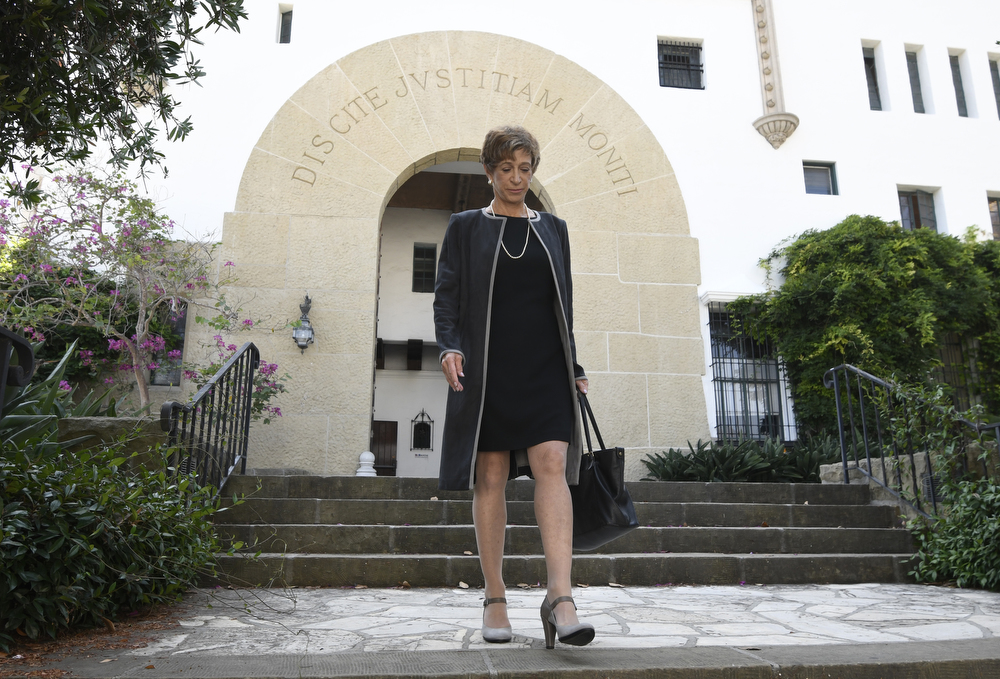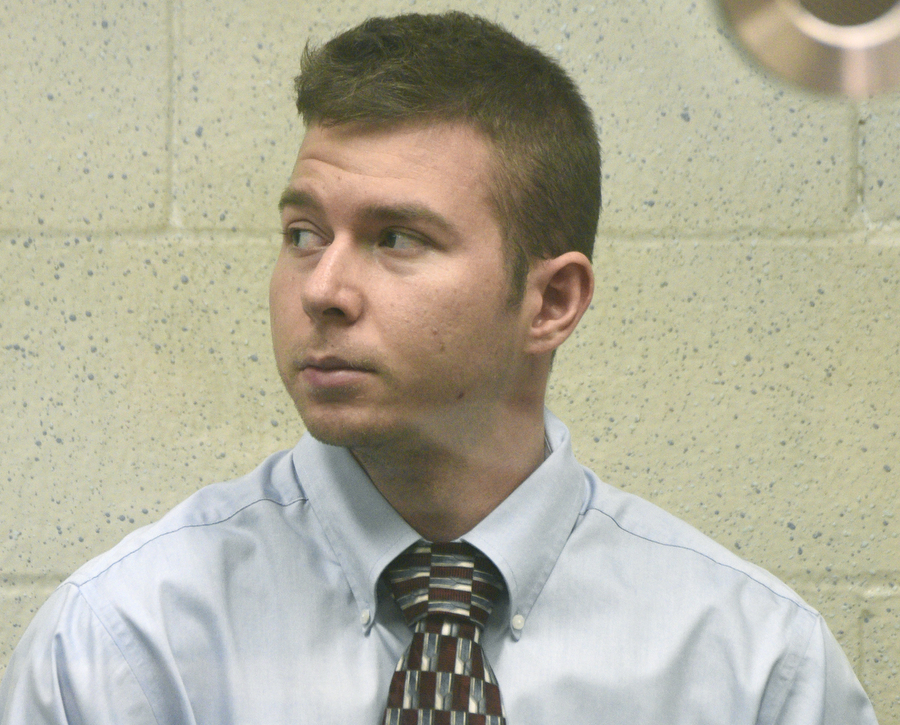
After much intense deliberation within the upper echelons of the District Attorney’s Office, Santa Barbara DA Joyce Dudley put Judge Brian Hill on notice Friday afternoon that she intends to seek the death penalty against accused killer Pierre Haobsh, who is charged with murdering Chinese herbalist Henry Han, his wife, Jennie Yu, and their five-year-old daughter, Emily, in March 2016.
Despite the grim details of the case, Dudley’s decision was hardly a foregone conclusion. A liberal Democrat, Dudley has never been a fan of the death penalty in general and has been critical in the past of its application in California, calling the system “dysfunctional.”
Dudley issued a short statement from the courtroom lectern, stating Haobsh “should be subjected to the most severe punishment under California law, which is the death penalty.” In so doing, she stated, she was putting the ultimate decision of life and death “into the good hands of the people of Santa Barbara County.”
Dudley had planned to hold a brief press conference afterward explaining the rationale for her decision, but she was precluded from commenting on the case at all by Judge Hill at the instigation of Haobsh defense attorney Christine Voss, who’d filed motions to enjoin anyone on the prosecution side from discussing in public any details of the case with the media or to any third parties. Hill will decide the fate of Voss’s motions on September 19, but until then, he issued the gag order Voss sought.

In the meantime, Voss made it clear that her client had submitted a letter to the court seeking to discharge Voss as his defense attorney because he wanted to represent himself. Hill urged Haobsh, shackled and dressed in a bright orange jail jumpsuit, to think long and hard about such a decision and to talk more with Voss, widely regarded as a formidable defense attorney. “A person who represents himself isn’t doing himself any good,” cautioned Hill, softening the sharp edges of the old the courthouse adage, “A person who represents himself has a fool for a client.”
Voss’s interest in keeping a lid on public comment is self-evident: to limit pre-trial publicity. The details of the case presented during the preliminary hearing could not have been grimmer or more sensational: eight bullet holes in the head of the Hans’ daughter, three bullets apiece into the skulls of the two parents. All delivered as the victims lay in their beds.
According to the prosecution, Haobsh — a longtime business associate of Henry Han — acted with calculated premeditation, plotting out the murders well in advance in hopes of getting his hands on $20 million he allegedly believed Han had at his disposal. Little is known about Hoabsh, who has been described alternately as smart and brilliant, if peculiar in the extreme and socially awkward. During the preliminary hearing, Sheriffs’ investigators testified Haobsh confessed to killing the Hans to a porn-dealing, pot-growing friend only hours after doing the deed. They amassed video tape of Haobsh buying the plastic sheets he used to wrap the victims’ bodies, not to mention the copper tubing he used to fashion a silencer for his gun. Investigators located Haobsh by tracking the cell phones of Henry Han and Jennie Yu, which he reportedly stole. Likewise, when Haobsh was arrested, he had Han’s wallet and Yu’s jewel-encrusted Rolex.
To the extent that Haobsh could be pegged as a criminal mastermind, it was clear by the close of the preliminary trial that he’d been too clever by half. When asked at the end of that hearing what she intended to do next, Haobsh’s attorney Christine Voss stated, “I need to let her know,” she said, referring to Joyce Dudley, “who Pierre Haobsh really is.”
Dudley and others involved in the case met with Voss. What was said remains unknown. Clearly, whatever mitigating factors Voss brought up were not compelling enough. Or perhaps Haobsh couldn’t bring himself to agree to any deal that would put him behind bars for the rest of his life. Prior to those discussions, Dudley had expressed general concerns about death penalty defendants with limited IQs or serious mental-health issues. With Haobsh, IQ was clearly not an issue.
In earlier interviews, Dudley made it clear her skepticism about the death penalty had been affected by the success of Prop. 66 last November, in which voters statewide endorsed a ballot initiative to speed up the process by which condemned inmates are executed. In that same election, voters also rejected a competing measure to abolish the death penalty outright. In Santa Barbara County, however, voters went the opposite direction — voting to abolish the death penalty and rejecting efforts to speed up executions. Such Santa Barbara-centric sentiments will no doubt make it challenging to find 12 jurors willing and able to sit through a lengthy trial and to impose the death penalty at the end of it, if the evidence so dictates.

